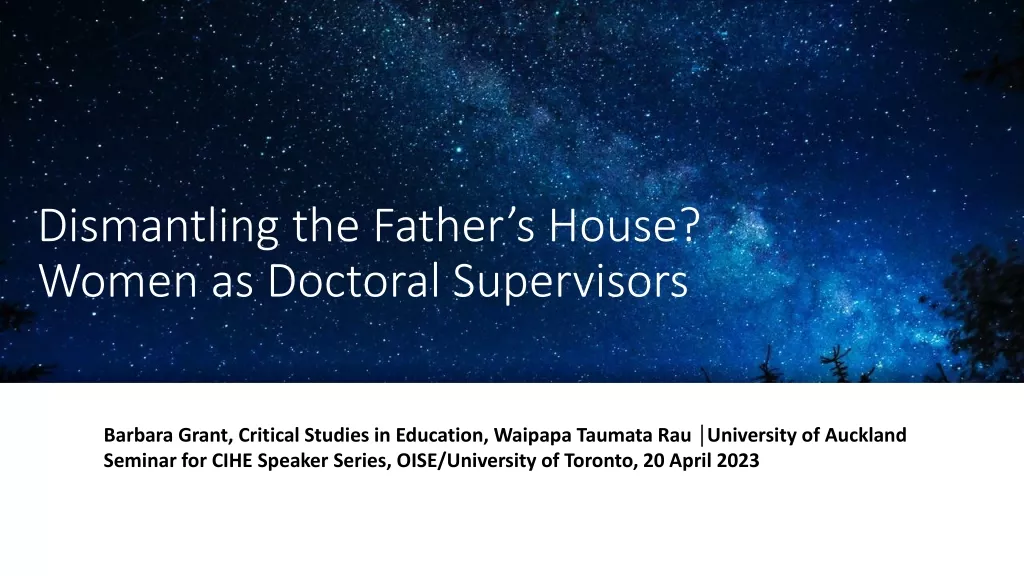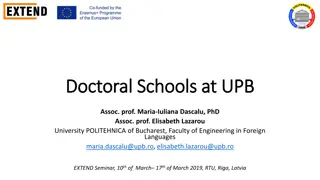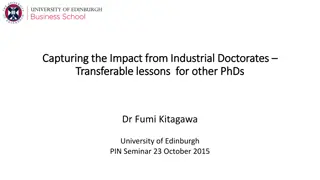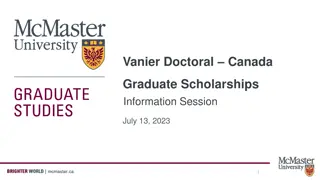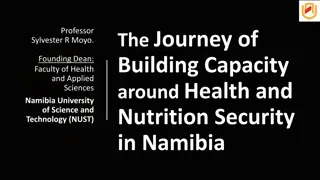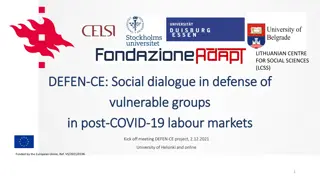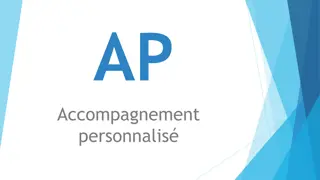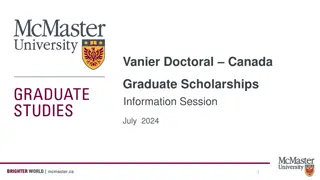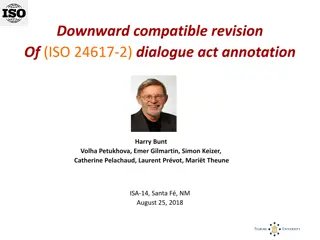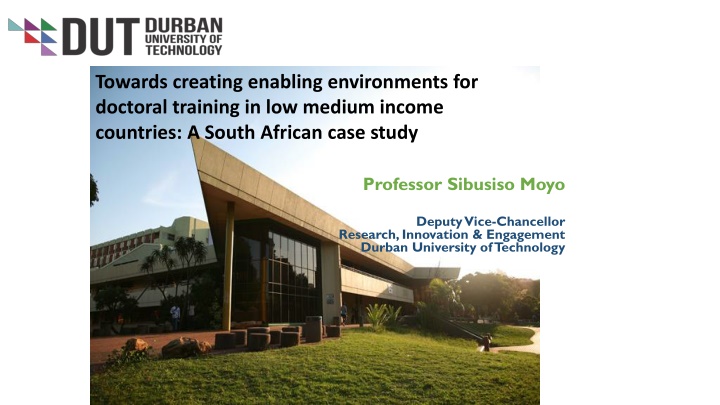
Enhancing Doctoral Training: Insights from South African Case Study
Delve into the critical factors enabling successful doctoral training in low to medium-income countries, focusing on South Africa as a case study. Discover how creating enabling environments contributes to fostering a pipeline of researchers with international research careers, emphasizing the importance of quality and structured programs for doctoral candidates. Explore comparisons with global best practices to optimize doctoral training outcomes.
Uploaded on | 0 Views
Download Presentation

Please find below an Image/Link to download the presentation.
The content on the website is provided AS IS for your information and personal use only. It may not be sold, licensed, or shared on other websites without obtaining consent from the author. If you encounter any issues during the download, it is possible that the publisher has removed the file from their server.
You are allowed to download the files provided on this website for personal or commercial use, subject to the condition that they are used lawfully. All files are the property of their respective owners.
The content on the website is provided AS IS for your information and personal use only. It may not be sold, licensed, or shared on other websites without obtaining consent from the author.
E N D
Presentation Transcript
Towards creating enabling environments for doctoral training in low medium income countries: A South African case study Professor Sibusiso Moyo Deputy Vice-Chancellor Research, Innovation & Engagement Durban University of Technology
Abstract Strong arguments have been presented both in the South African National Development Plan 2030 and other policy documents on the need to increase the doctoral pipeline. It is within this context that I will look at the critical factors and enablers for successful and quality doctoral training that contributes to developing a pipeline of researchers with cross sectoral mobility and international research careers and why this is relevant for low medium income countries within the African context. There are a number of determinants both at individual and institutional level which the doctoral candidate, research and postgraduate managers and strategic policy and governance structures need to be aware of in creating enablers to successfully develop doctoral candidates as researchers as well as the research (KPAs vs Quality). Comparisons are drawn from the context of a University of Technology where train the trainer acceleration programmes need more urgency and relevance for sharing best practice models across the higher education landscape.
Introduction & Global Context In a recent paper by (Barnett et al., 2017), a comparison of best practices for doctoral training in Europe and North America is given. They asked 63 detailed questions which focused on: research environment outcomes admission criteria content of programs mentoring (or supervising) the PhD thesis assessment of the thesis PhD school structure.
Overlap and Differences Their results showed that there was some overlap between aims and content of PhD programmes but considerable differences in terms of the structure of the PhD programmes, mentoring and assessment of the PhD theses. *This is also true for the SA landscape between and amongst Universities across the sector.
Typical University of Technology Track Typical University of Technology Track Masters BTech/?Hons Research Doctorates/PhDs & Course work
Compare with America & Europe Footprint (Source (Barnett et al., 2017))
University of Technology Context i. Curriculum UG & BTechs (Phaseout) - to Doctoral/PhD degrees ii. Selection Criteria Impact on throughputs but supported by equivalent supervisory and mentorship programmes iii. Gap Measures research skills training and data analytics iv. Structured predoctoral programme and case studies from Peace programme at DUT (Cohort Supervision) v. Governance structures and enablers registrations, proposal development, assessment, vi. Skills transfer scientific writing and data analysis vii. Train the trainer Staff studying also carry supervision burden Grace period for postdoctoral development!
2010 ASSAf PhD Study Points (i) to (vii) are supported by the 2010 ASSAf PhD Study (http://research.assaf.org.za/bitstream/handle/20.500.11911/34/2010_ASSAf_Ph D%20Consensus%20Study_%20Concise.pdf?sequence=1
Thank You! References BARNETT, J. V., HARRIS, R. A. & MULVANY, M. J. 2017. A comparison of best practices for doctoral training in Europe and North America. FEBS Open Bio, 7, 1444-1452.

